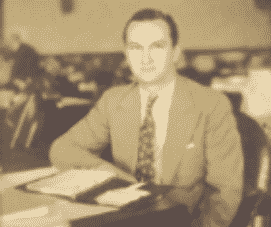TRUST AND WILLS DISPUTE LAW LAWYERS STUART, MARTIN COUNTY

Many individuals worry about the state of their property or business after they die. In order to make sure that their property is properly treated and accounted for upon their passing, they have the option of either setting up a trust or a will. These two legal options carry different benefits and drawbacks. Unfortunately, there is the possibility that even when an individual sets up one of these entities, these decisions will be questioned and disputed. The disputation may come on a number of grounds. In order to understand how such a document can be challenged, it is important to understand the difference between these two legal decisions.
How Do I Deal With a Dispute?
There are a number of reasons that a will or a trust might be contested. There could be a question as to whether or not the document was drafted under undue force by an individual who would benefit from the arrangement. The will or trust could also be unclear in its intent. Perhaps an individual feels as though they were entitled to more than they ended up receiving. In any situation and on either side of the argument, dealing with a dispute can be a challenging process. A living trust can be more difficult to contest that a regular trust or a will.
The best way to determine if you have the legal grounds to either file a dispute or to defend yourself from one is to contact an attorney who has experience with the will and trust disagreements. Our law firm—Crary Buchanan—can help you with any trust and will situations. We have been helping the Florida community since 1927. Over these years we have developed a heritage of quality legal counsel. We are committed to handling your case with only the highest professional standard. To find out more about the dispute process and what our team can do for you, give us a call and we can set up a consultation.
Contact a Skilled Attorney
Contact Us
What is a Will?
Many individuals want to make sure their property is treated properly after they die. This treatment could include where it goes and how it is handled. They may also be concerned about who will care for their children. One way to make sure these desires are taken care of is by drafting a will. A will is a legal document that is written to determine how the above situations will be handled. It will state to whom property, possessions, or items are given. It can also appoint a person as a guardian over minor children. There are a number of different forms that will come in. The first is called a self-proving or a testamentary will. This is a traditional will that most people are familiar with—a formally written document that is prepared in the presence of and signed by witnesses.
Another form is called a holographic will. This document is written independently without any witness and normally is not taken very seriously. A court will often reject such a document. There is also what is called a living will. This document is rather different from the rest and it only deals with medical care in the event that the person becomes incapacitated during their lifetime. Basically it will state whether or not the person will want to be sustained by or taken off of life support. Asset distribution will not be determined by this document. Oral wills are another possibility. These testaments are statements spoken out loud to a witness. Like holographic wills, these testaments hold the little bearing in court and the legal world.
Will: Benefits and Drawbacks
A will determines what will happen to a person’s assets after they die and name guardians for children. They can be very beneficial and are highly recommended. If a person does not have a will, the state of their assets will be uncertain and they will have no control over what happens to them. The process of dealing with an estate that is not governed by a will is very complicated and will most likely be very costly for all involved.
Anyone who desires to set up a will must keep in mind that they are not all-powerful and are not without flaws. If a will is not kept up to date, and insurance policy or retirement plan will most likely take precedence over what is designated in the will. A will does not deal with community property, life insurance proceeds, retirement assets, and joint assets when the other tenant has rights of survivorship. Another drawback of using a will is that it becomes a public record once it enters the probate stage. Unfortunately, probate can be a costly, slow, and unpleasant process to go through.
Disputing a Will
Disputes over wills can arise for a number of reasons. Some of these reasons include a fraudulent will, a lost will, or a clear factual error in the will. There is also the possibility that you or someone else feels as though the deceased should have made more provisions for you or them. Perhaps the mental health of the deceased at the time of the drafting is called into question. If all of the proper legal requirements and formalities were not met or carried out, the will can also be challenged. You may also make the claim that the deceased was forced to draw up and sign the document against their desires. If the deceased was coerced, it may be grounds for invalidating the will. If there is more than one executor named, disputes may arise between these two individuals.
What is a Trust?
Many individuals want to make sure their property and assets end up in the right hands after their death. One way to make sure such a desire is realized is by setting up a trust. A trust is a document that lays out an agreement whereby property is held or taken care of by one party or individual for the benefit of and eventual transfer to another party or individual. There two kinds of trusts: a testamentary trust and a living trust. These entities are very similar—the main difference is that a testamentary trust is officially established upon the grantor’s death while a living trust is established during their lifetime. Most people who decide to go with a trust instead of a will do so to avoid probate issues. Setting up a trust can also help to reduce estate tax liability as well as protect your property.
Components of a Trust
Anyone who is looking to set up a trust should be aware of the different components of what makes up such an arrangement. The first component is, of course, the person who is actually setting up the trust. This individual is called the grantor or trustor. The second is the objective of the agreement. The goal of the trust will help to determine the specific kind of trust that should be set up. Some of the different types include a credit shelter trust, generation-skipping trust, qualified personal residence trust, irrevocable life insurance trust, and qualified terminable interest property trust. Though each form carries different benefits and risks, ultimately having different types available allows people to specialize the agreement to their desires.
Once the goal of agreement and the type of trust is established, the grantor can place property into the agreement. This property is officially called “trust property.” The fifth component of the agreement is what is called the beneficiary. This is the person who benefits from the trust. Normally this individual receives the trust property either in full or in part. Another vital component of such an agreement is the person who is called the trustee. This is the individual who takes care of and manages the trust to make sure everything stays according to plan. When setting up a trust, there are a number of rules and guidelines that must be followed. The specific rules will be determined by the specific type of trust that is used.
How do I dispute a trust?
Though trusts are normally intended to eliminate or reduce problems, strife, and disagreements over property, sometimes they just end up causing these issues to an even greater degree. If the trust is not clear or well thought-out in its aim, it may prompt a dispute. If you feel as though you have been wronged by a trust, you may be able to contest it. A dispute will most likely not stand if the only reason behind the contest is hurt feelings.
However, if there is a legitimate basis for the contest, the claim may stand. Some of the grounds for such a dispute include if a promise has been made to you that was not carried out or fulfilled or if the document is invalid in some way. A few of the reasons for a trust to be invalid is if the trustee lacks capacity in some way or is under undue influence. There also may be an issue over interpretation of the document. If you are looking to dispute a trust or want to defend your rights from such a dispute, it is best to have an estate planning attorney at your side. This legal professional will be able to answer any questions you have concerning the validity of a trust as well as how strong the contest might be.
Attorneys Practicing Trust and Wills Dispute Law

Community

Experience



